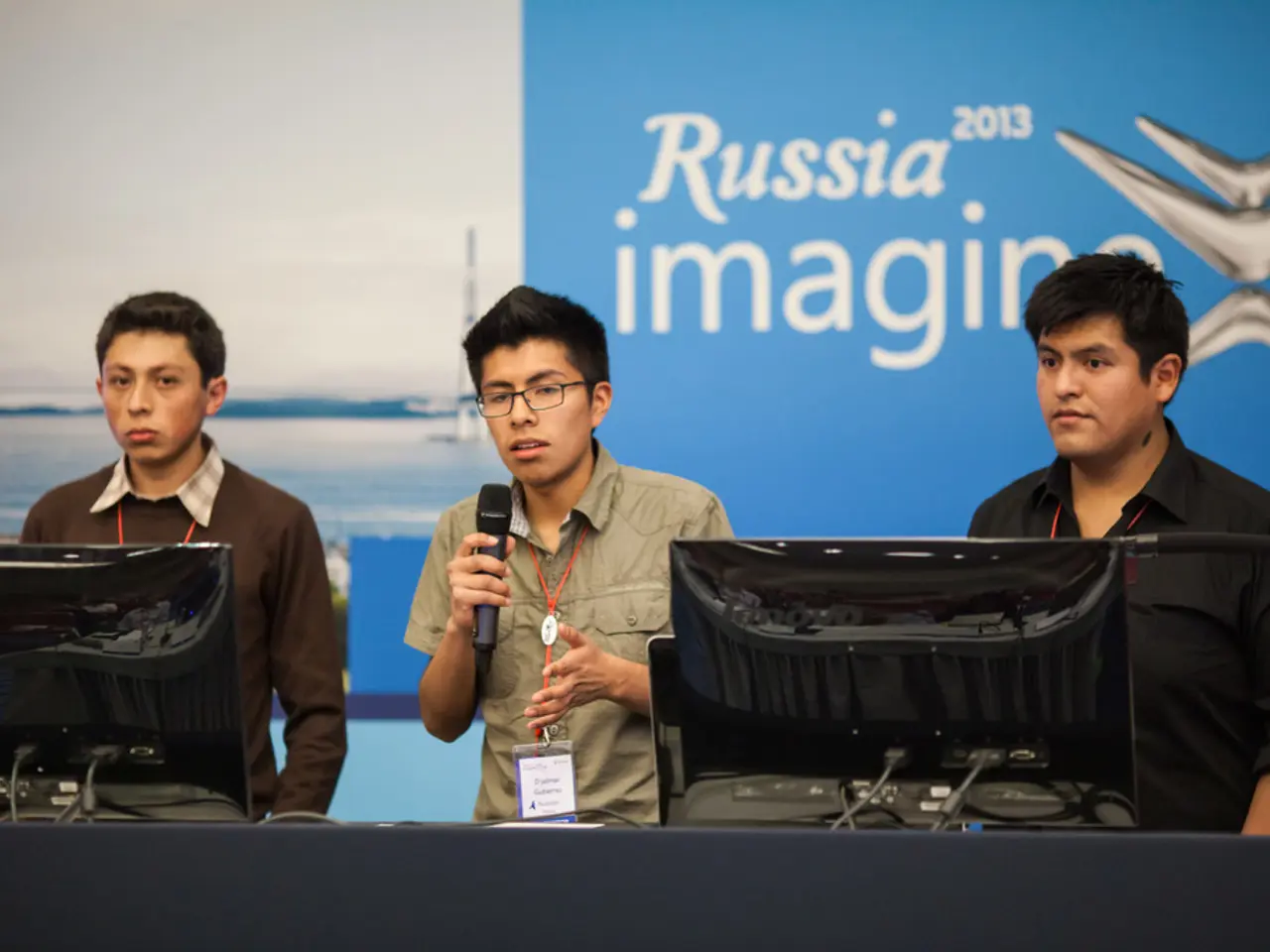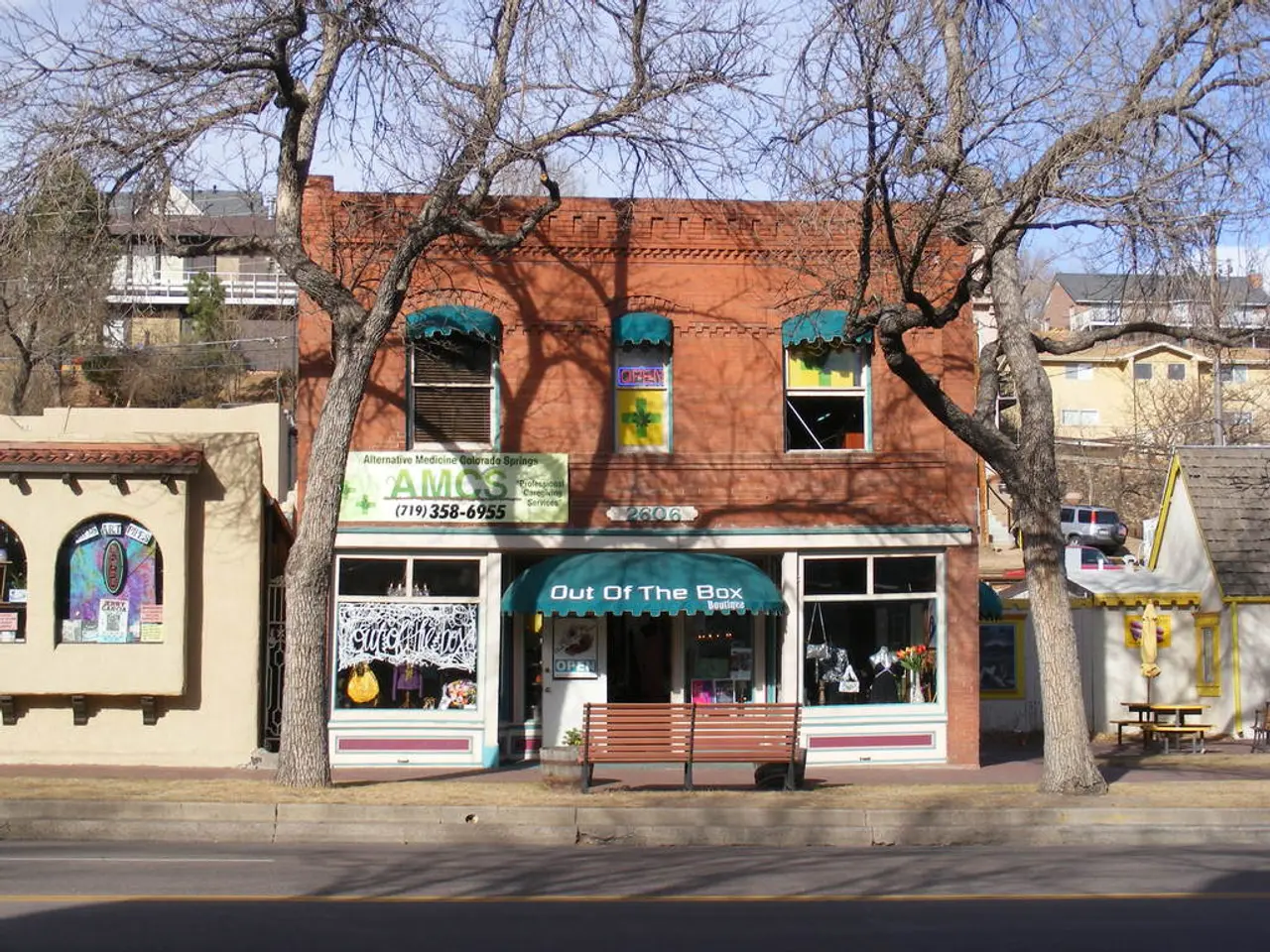Kazakhstan Assumes Major Political Role in the Area - According to Political Scientist Eduard Poletaev
In the global arena, Kazakhstan, under the leadership of President Kassym-Jomart Tokayev, continues to make significant strides in its diplomatic endeavours. The International Agency for Biological Safety, a proposal put forth by President Tokayev, is currently under discussion on international platforms.
Tokayev's diplomatic representations span all continents, a testament to Kazakhstan's commitment to global cooperation. The UN Regional Bureau, established in Almaty, Kazakhstan, in 1994, covers the entire Central Asia region.
The key issues addressed in Kazakhstan's interaction with the United Nations revolve around UN reform, climate action, sustainable development, and regional cooperation, particularly focusing on Central Asia and Afghanistan. A notable achievement in this regard is the establishment of the UN Regional Centre for Sustainable Development Goals (SDGs) for Central Asia and Afghanistan, headquartered in Almaty. This centre, led by Kazakhstan, aims to promote regional integration, economic development, and stability in the region.
President Tokayev has emphasised Kazakhstan’s strong support for multilateralism, diplomacy, cooperation, and UN reform efforts, aligning with the UN Secretary-General António Guterres’ priorities ahead of the 80th UN General Assembly.
Among Tokayev’s recent initiatives announced on the UN platform, the most significant for the global community is the creation of the UN Regional Centre for Sustainable Development Goals for Central Asia and Afghanistan. This initiative is crucial because:
- It strengthens regional cooperation and sustainable development efforts in Central Asia.
- It supports Afghanistan’s economic development, which is closely linked to the broader security and well-being of the entire region.
- It serves as a central platform for coordinating international and regional activities in sustainable development, sharing best practices, technical assistance, and joint projects.
At the Third UN Conference on Landlocked Developing Countries, Tokayev highlighted the ongoing challenges faced by landlocked developing countries (LLDCs), such as limited transport links, economic difficulties, and geopolitical vulnerabilities. He reiterated Kazakhstan’s leadership role, recalling that Kazakhstan hosted the first UN conference on LLDCs and initiated the Almaty Program of Action. The new UN SDG center in Almaty complements and advances the goals established for LLDCs by fostering regional connectivity and cooperation.
During his tenure in the UN Security Council, President Tokayev actively promoted the agenda of peace and security, including the situation in Afghanistan. The UN General Assembly adopted a resolution supporting further exploration of the possibilities for establishing the International Agency for Biological Safety, as proposed by President Tokayev.
It is worth noting that Kazakhstan's diplomatic relations are conflict-free with any UN member state. During the challenging 1990s, UN agencies provided significant support to Kazakhstan in the development of strategies, programs, and legislative documents in various areas such as environmental protection, healthcare, economic reforms, and others.
Currently, Kazakhstan maintains diplomatic relations with more than 180 out of the 193 officially recognized UN member states. As Kazakhstan continues to engage with the United Nations, its initiatives in areas such as sustainable development, regional cooperation, and peacekeeping will undoubtedly shape the future of Central Asia and the broader international community.
References: [1] The Astana Times. (2021, April 27). Kazakhstan proposes creating UN regional centre for sustainable development goals for Central Asia and Afghanistan. Retrieved from https://astanatimes.com/2021/04/kazakhstan-proposes-creating-un-regional-centre-for-sustainable-development-goals-for-central-asia-and-afghanistan/
[2] The Astana Times. (2021, September 22). Kazakhstan reaffirms commitment to UN reform, multilateralism at 76th General Assembly. Retrieved from https://astanatimes.com/2021/09/kazakhstan-reaffirms-commitment-to-un-reform-multilateralism-at-76th-general-assembly/
[3] The Astana Times. (2021, August 13). Kazakhstan highlights challenges faced by LLDCs at Third UN Conference on Landlocked Developing Countries. Retrieved from https://astanatimes.com/2021/08/kazakhstan-highlights-challenges-faced-by-lldc-s-at-third-un-conference-on-landlocked-developing-countries/
[4] The Astana Times. (2021, September 16). Kazakhstan’s diplomatic relations with 183 out of 193 UN member states. Retrieved from https://astanatimes.com/2021/09/kazakhstans-diplomatic-relations-with-183-out-of-193-un-member-states/
[5] The Astana Times. (2021, April 27). Kazakhstan proposes creating UN regional centre for sustainable development goals for Central Asia and Afghanistan. Retrieved from https://astanatimes.com/2021/04/kazakhstan-proposes-creating-un-regional-centre-for-sustainable-development-goals-for-central-asia-and-afghanistan/
- In his commitment to the UN's priorities, President Tokayev has put forth a proposal for the International Agency for Biological Safety, aiming to strengthen policy-and-legislation and global cooperation in this critical area.
- As Kazakhstan continues to engage in politics on various international platforms, news outlets cover general-news related to its initiatives, such as the creation of the UN Regional Centre for Sustainable Development Goals for Central Asia and Afghanistan.








